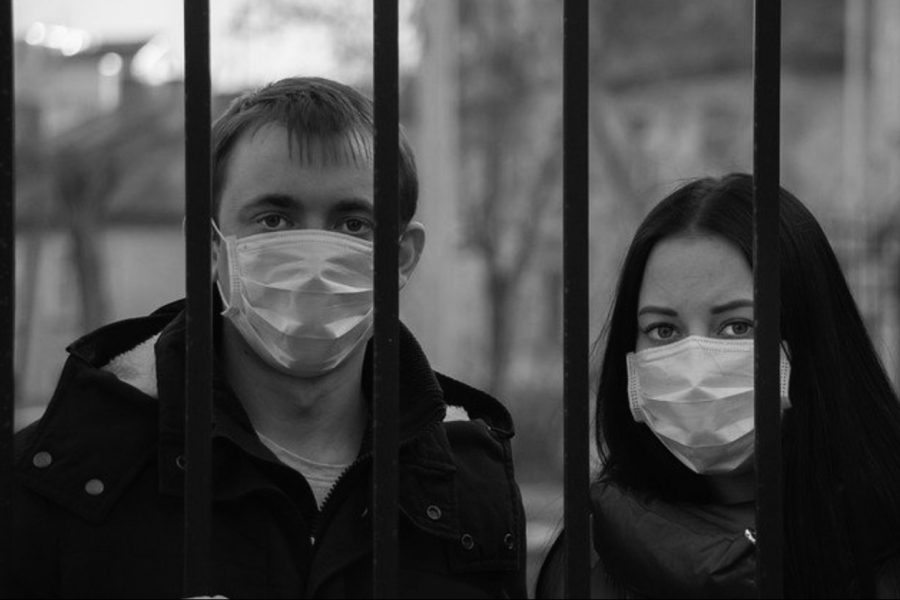Abusive relationships during the COVID-19 outbreak
Victims inside abusive relationships may feel trapped, even like they are behind bars. During the COVID 19 pandemic victims are now quarantined in their homes with their abusers. Crystal Corby, a school based/outpatient therapist at the ReDCo Group said “It makes sense that during this time, fears and tensions can be elevated. These elevated feelings can have a negative impact on healthy relationships as well as abusive relationships. If a partner feels unsafe in their situation, it may be helpful to consider getting out.”
Your eyes fill with tears. The partner who once supplied you with the feeling of tenderness, affection, and love now only transports pain. Your mind aches with every hurtful comment forced upon you thoughts. You perceive yourself as trapped.
Yet you live in the United States and it is April of 2020. Due to the outbreak of COVID-19, families are now quarantined in their own homes. According to the Merriam-Webster dictionary, the verb quarantine means, “to isolate from normal relations or communications.”
During this unprecedented time of public health recommendations urging social distancing, self-quarantine, and diligence in employing common-sense measures to prevent the spread of the disease, those experiencing domestic violence may face even more anxiety and new challenges to navigate. This will likely force victims and survivors to spend more time in close proximity with their abusers, increasing the risk to their safety and well-being during an already stressful time.
Although not much knowledge was exposed on this victim’s situation, NOLO has confirmed the following information. “Even with schools, restaurants, and venues closed down, courts and many domestic violence organizations, hotlines, and shelters are available to help. Victims can also seek help from law enforcement and emergency services.”
Contrary to belief both men and women can be victims in an abusive relationships. However, it was in 2018 that the United Nations had gone ahead and said that globally, “The home was the most unsafe space for women.” Sexual abuse, physical abuse, emotional torture, psychological trauma, dowry related death and killings have been recorded from the homes.
After Megan Bensinger, Court Advocate at Schuylkill Women in Crisis (SWiC), read this statement she said, “Unfortunately that quote doesn’t come as a surprise to me while working at SWiC. All services provided by SWiC are free, confidential, and provided regardless of gender, or sexual orientation, but we acknowledge that women and children are most vulnerable to this problem. This is a global crime and every country and state in the United States has different laws regarding response to domestic violence. One of the first steps in advocating for victims is standing together to raise awareness through education and prevention activities, providing crisis intervention to ALL victims, and advocating for social change.”
Sadly the fear of COVID-19 Virus can be used against victims. COVID-19 has brought about many fears and challenges that some people in younger generations have never had to face. Learning to navigate this new time with heightened emotion is an essential. It is crucial that mental health is continued to be valued during this time. Whether it be continuing to manage sobriety, working with a therapist to cope with grief, or seeking safety in a domestic violence shelter.
Mental health is just as significant as physical health. However, every precaution should be taken. Social distancing, wearing a mask, and increased handwashing are all relevant. Many mental health agencies are offering continued services through Telehealth. Telehealth is therapy over the phone or webcam.
Crystal Corby, a School based/outpatient therapist at The ReDCo Group said, “If you feel you are in need of a safe house or shelter it is important to reach out to resources in your area. Make sure to see what is available during the pandemic. Schuylkill Women in Crisis offers information on their website, including contact numbers, regarding shelters.”
Originally founded in 1983, SWiC provide services to victims of domestic and sexual violence. But that’s not all, they work to confront the societal issues that contribute to abuse. SWiC is motivated by the belief that all individuals are entitled to live free of the fear and pain caused by emotional and physical abuse.
Court Advocate at SWiC, Melissa Bensinger, said, “If you feel unsafe in your home at this time, or anytime, it is important to remember that during this pandemic all local emergency personnel are still available for assistance. If you are in immediate danger and need help, call 911. SWiC has services available to victims such as a 24-hour hotline 570-622-6220 or 800-282-0634, emergency shelter/safe house, counseling, and safety planning just to mention a few.”
However no matter what precautions are taken, there will always be terrible people in this world. Despite of that, the incredible emergency service employees are here to help in every way they possibly can.
Orwigsburg police officer Bobby Bechtel said, “The first question that comes to my mind as an officer is, how can we separate parties? Either we get the female or male out of the house, maybe they can stay at a friends or family’s place. We try to let their heads cool. Try our best to solve their problems and talk sense into them.”
If you or a loved one ever feel unsafe, don’t be afraid to reach out. You are incredible and don’t deserve to be mistreated. The companies listed below are always available, even now. Remember, love is respect.
- National Domestic Abuse Hotline
- Schuylkill Women in Crisis
- Teens Experiencing Abusive Relationships
- Love is Respect
- Help Guide



